Company Set Up and Establishment In Greece
Starting a company in Greece is a straight forward process. It is important to decide on the most appropriate company structure for your business and proposed operations. We have discussed the different options below and provide a guide on how to start a business in Greece using our market entry support services.
Private Limited Liability Company (IKE – Etaireia Periorismenis Efthinis)
Many investors and business people chose to establish a private company (IKE). This is a simple and flexible company structure. Liability is limited. An IKE is established by one or more persons who owns shares. The minimum capital requirement is €1 and there is an administrator (no board of directors). There are statutory audit requirements which are undertaken in line with EU directives.
The legal representatives have liability and the time required for incorporation is approximately five days.
This company structure is suited to small and middle sized companies who require flexibility to operate.
There is a ‘One-Stop-Shop’ procedure for establishing the company which our team can assist you with. There is a requirement that within a month of incorporation a website is created.
Our Tsaks Consulting IKE establishment service includes:
- Establishing the company on the General Commercial Register
- Writing the Articles of Association as required.
- Drafting relevant documents and declarations.
- Issuance of tax and insurance certificates.
- Issuing the TIN number.
- Verifying proposed name / trademark.
- Submitting other required documentation to the commercial register.
- Payment of company establishment fees.
Enquire today to speak with our partner accountants and lawyers for a fixed price fee for our team to establish your company in Greece. Our services also include setting up bank accounts, tax representation and acting as your designated nominee.

Branch Office
Another option for expanding into Greece is to open a Branch Office in Greece. This involves setting up a branch office usually as either a Limited Liability Company or a Societe Anonyme (S.A). The process generally involves gaining approval from local authorities and attaining a tax registration number.
The appropriate corporate entity type will be decided by the authority responsible for approval. They do this by reviewing the information you submit. You need to appoint a legal representative to act in your name (we provide this service).
The Branch office structure has identical tax and accounting obligations to a local Greek company. The tax rate is equivalent. A VAT number and Tax I.D. is required. Our team can help you through the entire process including branch office registration, accounting and book keeping, legal advice and opening a bank account.
Our team here at Tsaks Consulting can help you:
- Understand your tax obligations.
- Negotiate and navigate any legal issues and agreements.
- Incorporate and manage your company.
- Decide on the most appropriate corporate structure.
- Manage HR and other functionalities.
- Arrange and navigate migration issues for your team.
- Translate critical documents.
- Develop and submit quality tenders and proposals to win government tenders.
- Strategic advice, business analytics and market analysis.
Public Limited Liability Company (AE – Anonymi Etairia)
This company type is generally suitable for larger businesses or enterprises who are looking to raise capital from the public. There is a minimum share capital amount of 24,000 euros. Given the public nature of these companies, the regulations, reporting requirements and oversight of the companies is much more extensive than for IKE companies. In addition, the shares issued in AE companies can be traded on the stock exchange. This helps enable quick access to large amounts of capital as well as increase in liquidity.
Limited Partnership (EE – Eterorythmi Etaireia)
The Limited Partnership (EE) company is a very popular option for many of our clients. This is because there is only unlimited liability for one partner. The other Partners have their liability limited to their individual contributions. It provides a combination of both a partnership and corporation in terms of characteristics. The benefit from a liability perspective is that the limited partners have their liability limited. This is similar to a corporation and protects the personal assets of the limited liability partners.
Most of the time, the general partners are highly active in the day to day activities and management of the company. In addition, there are same tax incentives since there is pass through taxation and the flat rate is generally chargeable for each partner. This is a useful structure for the ‘silent partner’ structure which popular in many western countries.
There is no minimum capital share requirement for this entity and EEs are governed by the Greek Civil Code.
General Partnership (OE – Omorrythmi Etaireia)
This is a business structure where two or more people are jointly liable for losses, management responsibilities and other of course profits. Each partner is personally liable for the debts and financial obligations of the business. Any creditors are able to go after the partners in their personal capacity.
There is generally a written partnership agreement which dictates profit sharing, management responsibilities and other issues. Generally speaking, all of the profits (and losses) are shared equally, unless something different is specified in the agreement.
There is pass-through taxation, meaning that the profits pass through to the partners personal income tax returns and aren’t allocated to the company.
There are risks of personal liability for general partnerships which need to be considered.
Sole Proprietorship (Etaireia Efylokos):
This is a very simple business entity where there is no separation between the owner and the business. It is easy and quick to establish and there is no liability protection. Sole decision making is one feature and the owner has control over business decisions and there is no separate legal entity.
European Company (SE – Societas Europaea):
This is an interested and sometimes popular type of company which is established under EU law. It allows cross-border operations
A type of company established under EU law, allowing for cross-border operations within the European Economic Area (EEA). SEs require a minimum share capital of €120,000 and must have a registered office in at least two EU member states. They offer flexibility in corporate governance and tax planning.
Contact our team today to discuss your expansion into the Greek market and your accounting, legal and marketing needs. Our partner accountants and lawyers can assist you be recommending the best company structure for your situation.
Client testimonials
We spoke with the team at Tsaks Consulting about our company establishment plans. They provided excellent guidance on what structures would be most suitable. In particular, they helped us understand the legal implications for being a director under the different company structures. We worked closely with one of their legal partners to establish the company – the optimal structure for us. Tsaks Consulting is an excellent, helpful and experienced consultancy to engage if you want to establish a company or presence in Greece.
Miranda K | Head of Accounts | Multinational and Athens
I am writing to talk about the services of Tsaks Consulting and their partner accountants and how they helped us establish a company in Greece. The team did everything right. They responded quickly and managed the company set up process for us. They told us what information they needed and could foresee issues and problems in advance. The best part about their service that really sets them apart is their understanding of businesses and companies on an international level and how to structure everything. The accounting partners who are associated with Tsaks Consulting have a relatively comprehensive understanding of global company tax rates especially in the USA, London, Europe and Australia, so they can advise you from a somewhat global perspective.
Dennis C | Financial Controller | Multinational Corporation
